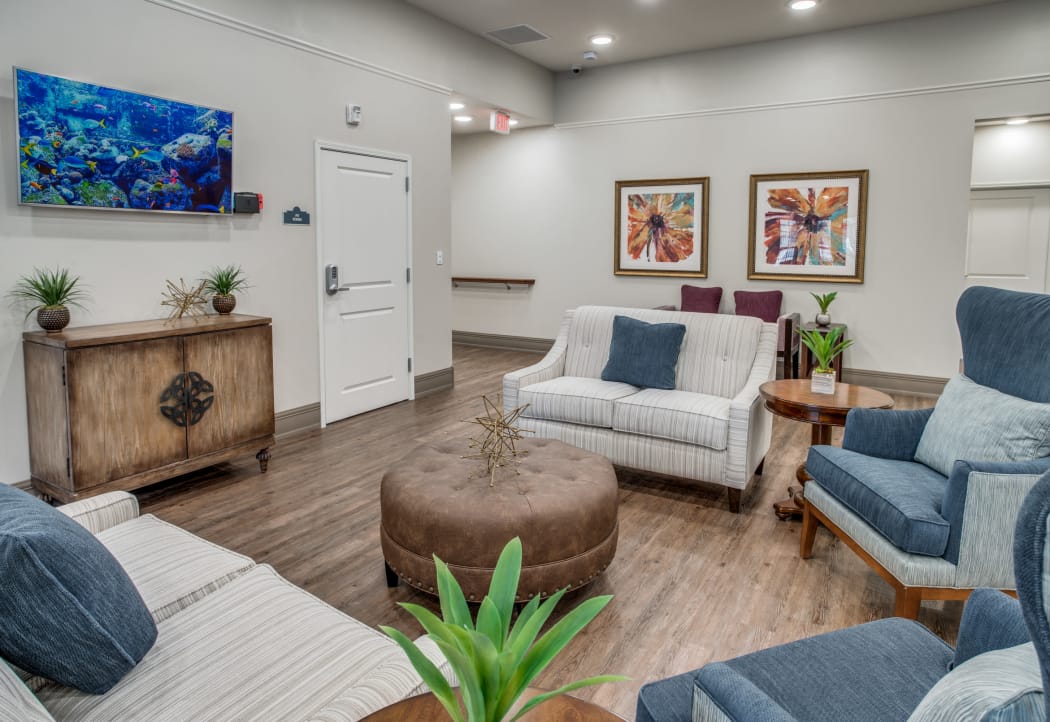Creating a Safe and Helpful Atmosphere: In-Home Memory Care Essentials
Establishing a nurturing and safe and secure environment for individuals calling for at home memory care is vital to their health and quality of life. From ensuring safety within the home to employing reliable interaction strategies and implementing memory-friendly style aspects, there are crucial parts that add to an alternative treatment strategy. By concentrating on developing a supportive ecosystem that deals with the one-of-a-kind demands of those with memory disabilities, caretakers can considerably enhance the day-to-day experiences of their loved ones.

Safe Living Atmosphere
When giving at home memory treatment for individuals with cognitive disabilities,Creating a hazard-free and safe living setting is extremely important. Guaranteeing the safety and security of the specific with memory loss is crucial to protect against crashes and advertise a sense of well-being. One crucial aspect of developing a safe living setting is to eliminate any kind of prospective risks that might result in slips, journeys, or drops. This includes protecting loosened rugs, guaranteeing sufficient lights in all areas of the home, and keeping paths clear of clutter.
In addition, it is vital to set up safety attributes such as grab bars in restrooms and handrails along stairs to give assistance and stop accidents. In addition, making use of innovation such as movement sensing units and alarm systems can notify caretakers if the specific wanders or remains in distress. Producing a safe living setting also entails applying strategies to avoid wandering, such as making use of door alarm systems or locks to limit access to harmful locations. By prioritizing safety steps and getting rid of potential dangers, caregivers can give a protected and helpful environment for individuals with cognitive impairments receiving at home memory treatment.
Effective Communication Methods
Implementing tailored interaction techniques is essential in fostering significant interactions with people with cognitive impairments in the context of in-home memory treatment. Efficient interaction plays a crucial function in creating a helpful environment that boosts the wellness and lifestyle for people with memory concerns. When communicating with someone experiencing cognitive decrease, it is very important to use basic and clear language, maintain a tranquility and favorable tone, and supply aesthetic hints to aid comprehension.
One key method is to practice active listening, revealing compassion, patience, and respect throughout discussions. Non-verbal signs such as face expressions and body movement can also assist share understanding and support. In addition, using reminiscence treatment by discussing previous experiences or utilizing songs and art can touch into long-term memories, stimulating connections and promoting interaction.
Moreover, integrating normal regimens and constant interaction patterns can offer a sense of knowledge and safety and security for people with memory problems. By applying these interaction methods, caregivers can develop purposeful connections and promote a sense of convenience and trust in the in-home memory care setting.
Memory-Friendly Style
Provided the value of producing an encouraging environment for individuals with memory problems via reliable interaction approaches, the unification of memory-friendly layout aspects in the space comes to be imperative in enhancing their daily experiences and total health. Memory-friendly layout concentrates on improving security, comfort, and independence for people with cognitive disabilities. Straightforward adjustments can make a considerable distinction, such as using contrasting shades to boost exposure and lower confusion, integrating clear signage to aid navigating, and decreasing mess to avoid sensory overload.
Including familiar components from the person's past, such as favorite products or personal pictures, can stimulate favorable memories and produce a sense of familiarity. By incorporating these memory-friendly style components, caretakers can offer a helpful and secure living area that allows people with memory issues to keep their independence and high redirected here quality of life. Charlotte Memory Care.
Daily Regimen Planning
When creating a day-to-day routine for people with memory problems, careful planning is vital to support their cognitive feature and overall well-being. Developing a structured routine can aid reduce stress and anxiety, disorientation, and confusion usually experienced by those with memory problems.
Versatility is essential, as some days might need adjustments based on the individual's mood and energy levels. Consistently examining and adjusting the daily routine will certainly assist guarantee its efficiency in advertising a positive and reassuring atmosphere for people with memory challenges.
Assistance System Application
Establishing a durable network of encouraging people plays a crucial role in improving the top quality important site of treatment and well-being for individuals calling for memory assistance. Relative, close friends, medical care specialists, and community sources can all contribute to developing a solid support system. Interaction among these individuals is necessary to ensure that the needs of the individual with memory obstacles are met effectively.
Family members are usually the primary caregivers and form the backbone of the support system. They give everyday care, emotional assistance, and friendship. When required to avoid burnout and make sure the finest possible treatment for their loved one., it is critical for family members to seek help and break.
In addition to household assistance, including health care specialists such as registered nurses, physicians, and specialists can offer customized care and assistance. These specialists can offer useful insights, clinical recommendations, and aid in managing the individual's condition.

Conclusion
Finally, creating a safe and helpful setting for individuals with memory treatment demands is necessary for their health. By establishing a risk-free living environment, using effective interaction approaches, incorporating memory-friendly style elements, preparing daily regimens, and implementing a solid support group, caregivers can aid improve the quality of life for those with memory loss. These important parts function together to produce a nurturing and encouraging atmosphere that advertises independence and improves overall top quality of life.
Creating a hazard-free and protected living environment is extremely important when supplying at home memory care for individuals with cognitive impairments. By focusing on safety and security measures and eliminating possible hazards, caregivers can supply a supportive and safe atmosphere for people with cognitive impairments getting in-home memory treatment.
Developing a robust network of encouraging people plays a crucial role in boosting the quality of treatment and health for people calling for memory assistance - Charlotte Memory Care. Communication among these people is necessary to make certain that the needs of the private with memory obstacles are fulfilled effectively

 Edward Furlong Then & Now!
Edward Furlong Then & Now! Scott Baio Then & Now!
Scott Baio Then & Now! Meadow Walker Then & Now!
Meadow Walker Then & Now! Nicki Minaj Then & Now!
Nicki Minaj Then & Now! Sarah Michelle Gellar Then & Now!
Sarah Michelle Gellar Then & Now!